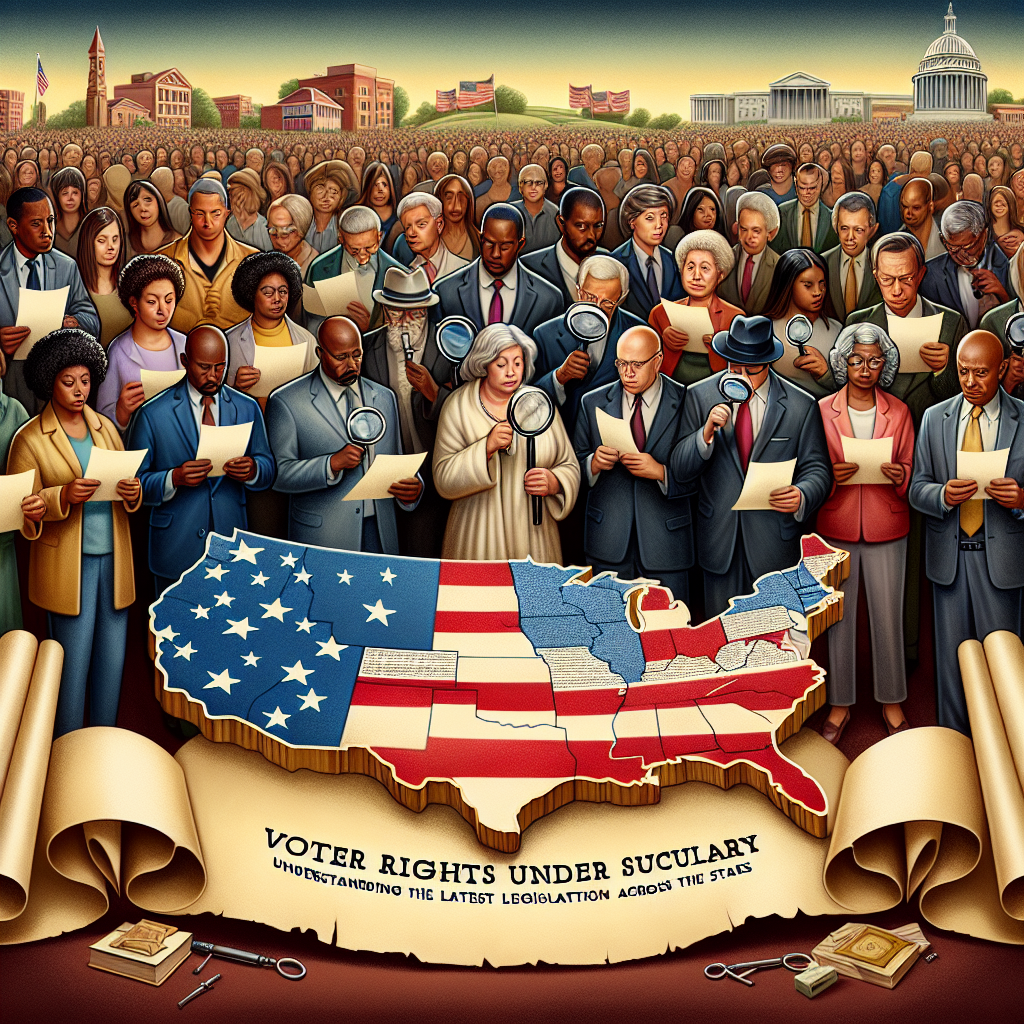As the political landscape in the United States continues to evolve, so do the laws governing voting rights. In recent years, a wave of legislation aimed at shaping the electoral process has swept across various states, raising questions about access to the ballot box, voter identification requirements, and the overall integrity of the electoral system. This article seeks to provide an overview of the latest voter-related legislation, the implications for voters, and the broader national discourse about democracy and representation.
The Context of Voter Legislation
The conversation around voter rights is not new; however, it has gained significant traction in light of recent high-profile elections, concerns about electoral fraud, and shifting demographic trends. Historically, various groups have fought for equal access to the ballot, and in recent years, efforts have intensified to either expand or restrict voting rights. Advocates for voter access argue that legislation should focus on inclusivity, while others assert that measures are necessary to ensure election integrity.
Recent Legislative Trends
Expanding Access
In response to the challenges posed by the COVID-19 pandemic, several states enacted laws aimed at expanding access to voting. Measures included offering more options for mail-in ballots, extended early voting periods, and streamlined registration processes. States such as California and New Jersey, for example, implemented more user-friendly approaches to mail-in voting and automatic voter registration. Advocates argue that these policies improve civic engagement and align with a democratic ethos that prioritizes participation.
Restricting Access
Conversely, a significant number of states have enacted laws perceived as restrictive. In 2021, more than 30 states introduced legislation aimed at tightening voter ID requirements, reducing early voting, and limiting mail-in voting options. Laws implemented in Georgia and Texas brought national attention due to their controversial provisions, including stricter identification requirements and limits on drop boxes. Proponents argue these measures bolster election integrity; critics contend they disproportionately affect marginalized groups, including racial minorities and low-income voters.
Battleground States and Legal Challenges
Several battleground states have emerged as critical focal points for voter rights legislation. In Georgia, the legislature’s enactment of Senate Bill 202 has led to widespread outcry and legal challenges. The law imposes strict ID requirements for absentee ballots and curtails the use of drop boxes. Simultaneously, Arizona has pursued similar legislative measures, igniting debates about voter suppression and election security.
Civil rights organizations have actively challenged many of these laws in court, arguing that they violate the Voting Rights Act and the Constitution by discriminating against specific populations. The judiciary’s role in adjudicating these disputes has never been more pivotal, as courts across the country grapple with striking a balance between state interests and individual rights.
What’s Next for Voter Rights?
The ongoing shifts in voting rights legislation have led to significant national conversations surrounding the future of democracy in the U.S. Here are some aspects to consider moving forward:
1. Federal Legislation: The John Lewis Voting Rights Advancement Act
Amidst the myriad of state-level actions, advocates for voter access have pushed for comprehensive federal legislation, notably the John Lewis Voting Rights Advancement Act. This proposed bill aims to restore protections weakened by recent Supreme Court rulings and expand access to the ballot. However, the bill’s prospects remain uncertain amidst ongoing partisan divides.
2. Public Awareness and Engagement
The narrative surrounding voter rights has galvanized grassroots movements and increased public awareness about the importance of accessible voting. Activism and education campaigns have sought to empower citizens to engage with local representatives and advocate for their rights.
3. Technological Innovations
As technology plays an increasingly prominent role in election processes, states are exploring new ways to streamline voting. Online voter registration, secure voting technologies, and transparent auditing processes are at the forefront of discussions about improving electoral systems.
4. Long-Term Impacts on Democracy
The implications of current voting rights legislation will extend beyond the immediate electoral cycle. As states continue to implement diverse approaches to voting, the equilibrium of American democracy hangs in the balance.
Conclusion
The landscape of voter rights in the United States is undeniably complex, marked by contrasting legislative efforts that reflect broader societal tensions. As states grapple with the hot-button issue of electoral access, the unfolding developments will ultimately shape the very foundations of democracy. Citizens, advocates, and lawmakers alike must remain vigilant, as the fight for fair and equitable voting rights continues to take center stage in American politics. The outcome of this battle will determine not just how elections are conducted, but who gets a voice in the important decisions that affect their lives.
